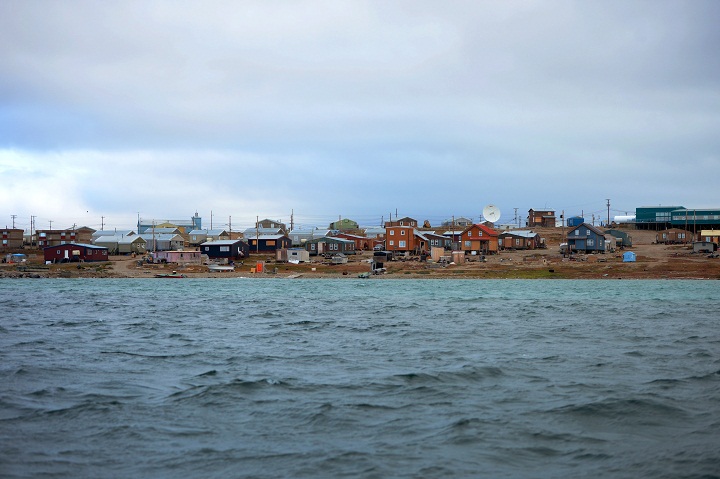IQALUIT, Nunavut – A world away from the high-tech, high-stakes political campaigns the rest of Canada has grown used to, Ron Elliott looks out the window of his home in Arctic Bay and sees no indication that voters are heading to the polls Monday.

“Here, it’s very low-key,” said the candidate for the constituency of High Arctic.
“I think people like that. It’s not so much in your face.”
Elliott is hoping voters give him the nod for the second time to assume one of the 22 seats in the territorial legislature in Iqaluit. His constituency – which includes the communities of Grise Fiord, Resolute and his home town of Arctic Bay – is the most isolated political jurisdiction in Canada and perhaps the world.
Not so much as a vote-for-me sign clutters the quiet streets of this hamlet high atop Baffin Island. No mailboxes groan with campaign bumpf.
In a place like Arctic Bay, population 823, why bother?
“People know you, so why create a button that says ‘Vote for Ron’ when your name is already there?” Elliott asked.
“I spend a lot of time hanging at the Northern Store, meeting with people and talking with them and inviting people over for coffee at the house.”
He estimates his total campaign expenses at about $60. In communities where everyone knows someone who might be going hungry that day, political spending seems questionable.
- Alberta to overhaul municipal rules to include sweeping new powers, municipal political parties
- Grocery code: How Ottawa has tried to get Loblaw, Walmart on board
- Military judges don’t have divided loyalties, Canada’s top court rules
- Canada, U.S., U.K. lay additional sanctions on Iran over attack on Israel
“The smaller communities have zero expenses,” Elliott said. “They try to keep the expenses down and not go that way because it seems a wrong way of spending money.”
Those attitudes are gone in Iqaluit, where the familiar trappings of political campaigns are becoming increasingly slick.
“The campaigns are getting a little more sophisticated,” said Jim Bell, the editor of Iqaluit’s Nunatsiaq News.
There are campaign signs at Four Corners, site of the territory’s only four-way stop. Printed brochures and door-knocking are part of the game.
“The candidates seem to be running campaigns that you would recognize in Toronto or Montreal,” Bell said.
Still, there are shared concerns. Although Nunavut’s consensus-style government means there are no political parties and no platforms, some common issues have arisen.
Many Nunavummiut are concerned the territory’s education system isn’t preparing youth for opportunities that wait for them in one of the mining developments expected over the next few years.
“There’s a big groundswell of opposition to social promotion – the practice of moving students ahead from one grade to the next whether they’ve passed the material or not – coupled with demands for higher quality of education at the elementary and high school levels,” said Bell.
“A lot of parents are noticing that their children, when they graduate from Grade 12, are still not prepared for college and university programs. It’s coming up in a lot of constituencies.”
The North’s high cost of living is also an issue, especially in more isolated constituencies such as Elliott’s. So is the emphasis on resource development.
“The majority of my constituents still enjoy going hunting and have a great respect for the land. There is some hesitancy as to ‘what does this mean?”‘ Elliott said.
Whatever issues may motivate voters to head to the polls, there will be no new premier on Monday. That won’t be decided until mid-November, when newly elected MLAs will meet to choose the leader from among themselves.
Incumbent Eva Aariak has said she won’t run again for the top job, despite campaigning for a seat. The only candidate to have announced interest in the job is Jack Anawak, a longtime northern politician who was once a Liberal MP for the Arctic.
By Bob Weber in Edmonton



Comments